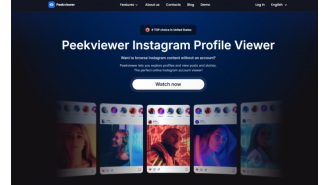London's lack of 24-hour activity is negatively affecting tourism.
Is it possible to rescue London's nightlife?

Is there hope for London's nightlife to be revived and attract tourists once again? In the past, London was known as one of the top destinations for nightlife, but now it seems to be in a state of crisis. As the mayoral election approaches, many Londoners are concerned about the current state of the city's social scene, which has not only declined in recent years, but has also become a major topic in each candidate's manifesto.
According to the latest polls, it looks like the current mayor, Sadiq Khan, will continue his tenure with 47% of the votes in his favor. If re-elected, Khan has promised to establish a London Nightlife Fund and a London Nightlife Taskforce as part of his vision to make London a 24-hour city and revitalize its nightlife and hospitality industries.
Other candidates have also proposed solutions to boost London's nightlife, such as extending the Night Tube to other lines, implementing a levy on large stadiums to support smaller businesses, and even considering a "hail and ride" system for buses. This issue not only affects the 8.9 million residents of London, but also has a significant impact on tourism and those who visit the city seeking its once vibrant nightlife.
The pandemic has undoubtedly played a major role in the decline of Central London's nightlife. The series of lockdowns and the restrictions on leaving home have had a lasting effect. As a result, over 3,000 nightclubs, bars, and pubs in the city have permanently closed since March 2020, according to research by the Night Time Industries Association (NTIA). As mentioned by NTIA's chief executive, Michael Kill, before the pandemic, London used to attract over 300 million nightlife tourists annually, with 25% of that traffic heading to the city. The impact of these closures on the economy and the city's identity cannot be ignored.
The changing habits of Londoners, along with the rise of hybrid working, have also contributed to the decline of the city's nightlife. A survey conducted in 2022 revealed that Thursdays have become the new Fridays, as more people take advantage of working from home towards the end of the week. This means that there are fewer people in the city center when the sun sets, which can be particularly noticeable for tourists staying in Zone 1. As Michael Kill puts it, London is known for its culture, especially counter-culture, which adds to the city's vibrant tapestry and makes it a desirable destination for both domestic and international tourists. Therefore, it is crucial to protect and support these industries.
Laura Evans-Fisk, head of digital engagement at eurochange, points out that many iconic venues, such as G-A-Y Late and Printworks, have closed down in London, which used to attract international visitors as well as locals. The early closing times in London also cause confusion for tourists. On Reddit, a user shared their surprise at how early everything closes in London compared to other European cities they have visited. These observations raise the question: can London regain its 24/7 status?
The debate over whether London is still a 24-hour city has been ongoing for some time. In March, the London Mayor's office claimed that London is leading the world in its 24-hour policy and is being looked to for inspiration by other global cities. However, this sparked a backlash on social media, with the hashtag #LameLondon trending, as users shared their frustrations with the lack of nightlife. Pictures of signs stating "no drinks outside after 9.30pm" were shared, and others pointed out the limited options for the Night Tube, which only runs on Fridays and Saturdays and on a few lines. The Tube generally stops operating around midnight.
Compared to other European cities, London's early closing times and limited Night Tube options mean that it is falling behind in terms of nightlife. Laura Evans-Fisk notes that in cities like Paris, people can enjoy cocktails in the squares until late at night, whereas in London, many pubs and bars close before midnight, which used to coincide with the last Tube home. She also points out that cities like Madrid have more regular public transport systems in the early hours, with the Metro running until 1.30am every day.
In addition to extended public transport options, reducing the high cost of drinks in London would also help promote nighttime activity. Laura mentions that the current cost-of-living crisis has made it difficult for many people to afford a night out in the city. Surviving clubs are also adapting to the changing landscape by offering more than just alcohol. For example, Fabric has introduced a corner shop and pizza station inside the club, catering to those who are not interested in drinking and making it a "multi-purpose" destination.
It is hard to predict whether London's nightlife scene can be saved. However, one thing is for sure, it is a vital part of the city's cultural and economic landscape. As Michael Kill puts it, nighttime economy businesses play a crucial role in driving domestic and international tourism, and it is imperative to safeguard and support them. So, while the future of London's nightlife may be uncertain, it is clear that it is essential to take action to preserve it.










